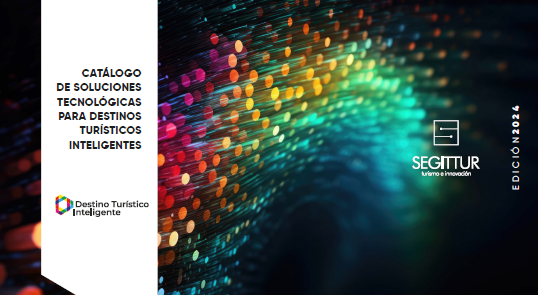SEGITTUR presents 401 technological solutions for smart destinations in a catalogue produced in collaboration with AIR Institute
SEGITTUR has published the fourth Catalogue of Technological Solutions for Smart Tourist Destinations. This issue compiles a total of 401 solutions and services from the information that companies in the sector have included in the Directory of Technological Solutions for Smart Tourist Destinations.

The included services are categorised and classified according to the axes that articulate the Smart Tourism Destination model: governance, sustainability, innovation, technology and accessibility. Each of the sheets contains information on the type of solution or service based on 26 typologies and its possible application for cultural and urban destinations, beach, nature and sport or niche tourism. Likewise, a mention is included in each file when the solution or service belongs to any of the collaborating companies that are part of the Smart Tourist Destinations Network, as is the case of AIR Institute.
The services are categorised and classified in line with the axes that articulate the Smart Tourism Destination model: governance, sustainability, innovation, technology and accessibility. Each of the files contains information on the type of solution or service based on 26 typologies and its possible application for cultural and urban destinations, beach, nature and sport or niche tourism. Likewise, a mention is included in each file when the solution or service belongs to any of the collaborating companies that are part of the Smart Destinations Network, as is the case of AIR Institute.
The number of solutions in this fourth issue represents an increase of more than 13% compared to the last one. A total of 159 organisations are included in the categories or typologies mentioned above, which include topics such as the development of applications, consultancy, graphic design, drones, artificial intelligence, internet of things and marketing, among others.
Once again, this catalogue will help destinations to better respond to the needs of the DTI model and its growth, making it very useful for different social and economic actors.